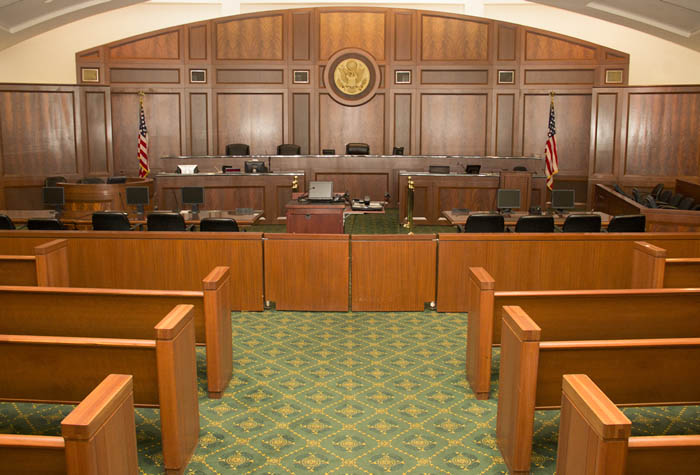Many Massachusetts attorneys that practice post-conviction litigation have been reviewing cases relative to the viability of raising the issue that a defendant was deprived of his Sixth Amendment right to s public trial—even during jury empanelment when spectators were excluded from the courtroom. Within the past few years it was discovered that many Superior Court Houses—particularly in Plymouth and Middlesex County—routinely prevented spectators from entering the courtroom during jury empanelment. The justification was often that the courtrooms were small and that there was simply not enough room to accommodate the venire and the spectators. 
Unfortunately the Supreme Judicial Court issued three opinions recently that are not favorable for the defense. See, Commonwealth v. Albord, Commonwealth v. Morganti and Commonwealth v. Ray. In Commonwealth v. Albord, The Supreme Judicial Court held that the defendant waived his right to a public trial where his experienced trial counsel was aware that the courtroom was routinely closed to spectators during the empanelment process and did not object. The Court further held that defense counsel’s failure to raise such an objection did not fall “measurably below that which might be expected from an ordinary, fallible lawyer” at the time. See, Commonwealth v. Morganti.
Development Of Courtroom Closure Case Law
It is well settled that the violation of a defendant’s Sixth Amendment right to a public trial is structural error requiring reversal. See United States v. Marcus, 560 U.S. 258, 263 (2010), citing Waller, 467 U.S. 39 (limited class of errors deemed “structural” include violation of right to public trial); Cohen (No. 1), 456 Mass. at 105 (in determining whether public trial right was violated, court cognizant that such violation is “structural error and not susceptible to harmless error analysis” [citations omitted]); See, Commonwealth v. Morganti. However, even structural error “is subject to the doctrine of waiver.” See id. at 105-106; Mains v. Commonwealth, 433 Mass. 30, 33 n.3 (2000) (deficient reasonable doubt instruction is structural error that is subject to waiver). The defendant himself need not consent to a waiver of his right to an open court room during the jury empanelment process; trial counsel may waive the right on his own as a tactical decision without informing his client. Lavoie, 464 Mass. at 88-89, citing Gonzalez v. United States, 553 U.S. 242, 249-250 (2008). Further, the right to a public trial may be procedurally waived by a failure to lodge a timely objection to the offending error. See Hatcher v. Hopkins, 256 F.3d 761, 764 (8th Cir. 2001), cert. denied, 536 U.S. 926 (2002) (structural error analysis inapplicable to State court conviction where issue not preserved by objection); Lavoie, 464 Mass. at 88 (public trial right waived where counsel decided not to object to closure); Commonwealth v. Dyer, 460 Mass. 728, 736-737 & nn.7-8 (2011), cert. denied, 132 S. Ct. 2693 (2012) (counsel and defendant waived error when they did not object to conducting voir dire in judge’s chambers, where public was excluded); Commonwealth v. Horton, 434 Mass. 823, 832 (2001) (waiver where counsel asked for individual voir dire and never objected to questioning in the deliberation room). See also Melendez-Diaz v. Massachusetts, 557 U.S. 305, 314 n.3 (2009) (holding that right to confrontation may be waived by failure to object, and that States may adopt procedural rules governing the exercise of such objections). Contrast Presley, 558 U.S. at 210 (error preserved by objection); Waller, 467 U.S. at 42 (same); Cohen (No. 1), 456 Mass. at 100 (same).
Can The Courtroom Closure Issue Ever Be Raised In Light Of These Recent Cases?
If a defendant believes that his or her right to a public trial was violated it will be necessary to distinguish his or her case from these decisions. In Commonwealth v. Albord, the Supreme Judicial Court held that the defendant waived his right to a public trial where his experienced trial counsel was aware that the courtroom was routinely closed to spectators during the empanelment process and did not object. Thus, if an attorney lodged an objection to the exclusion—the issue may still be viable. Additionally, if the case has not been heard on direct appeal and NO new trial motions have been filed a defendant would be in a better position that a defendant who has gone through the appellate process and failed to raise the issue. If the defendant’s appeal has been litigated and the issue was not raised there is a good chance that the Court will view the issue as being waived.
Would A Claim Of Ineffective Assistance Of Counsel Be Successful If Trial Counsel Failed To Object To Spectators Being Excluded From The Courtroom During The Trial?
In Morganti, the Supreme Judicial Court held that, “In view of the professional norms at the time, and the record of the practice and the acquiescence in the practice. . . [trial counsel’s] . . . decision not to object was well within the range of reasonable professional judgments applicable to his conduct. “ Thus, depending on the circumstances it is not likely that a claim of ineffective assistance of counsel would be successful.
What Should A Defendant Do If He Or She Wants To Litigate This Issue?
Although the decisions in Alebord and Morganti are not favorable for the defense at this time — it appears that these decisions will likely be reviewed in federal court. For this reason, it is advisable to wait to litigate this issue at a later time in the event that the ruling in the Federal Court is favorable to the defense.
 Massachusetts Criminal Defense Attorney Blog
Massachusetts Criminal Defense Attorney Blog

